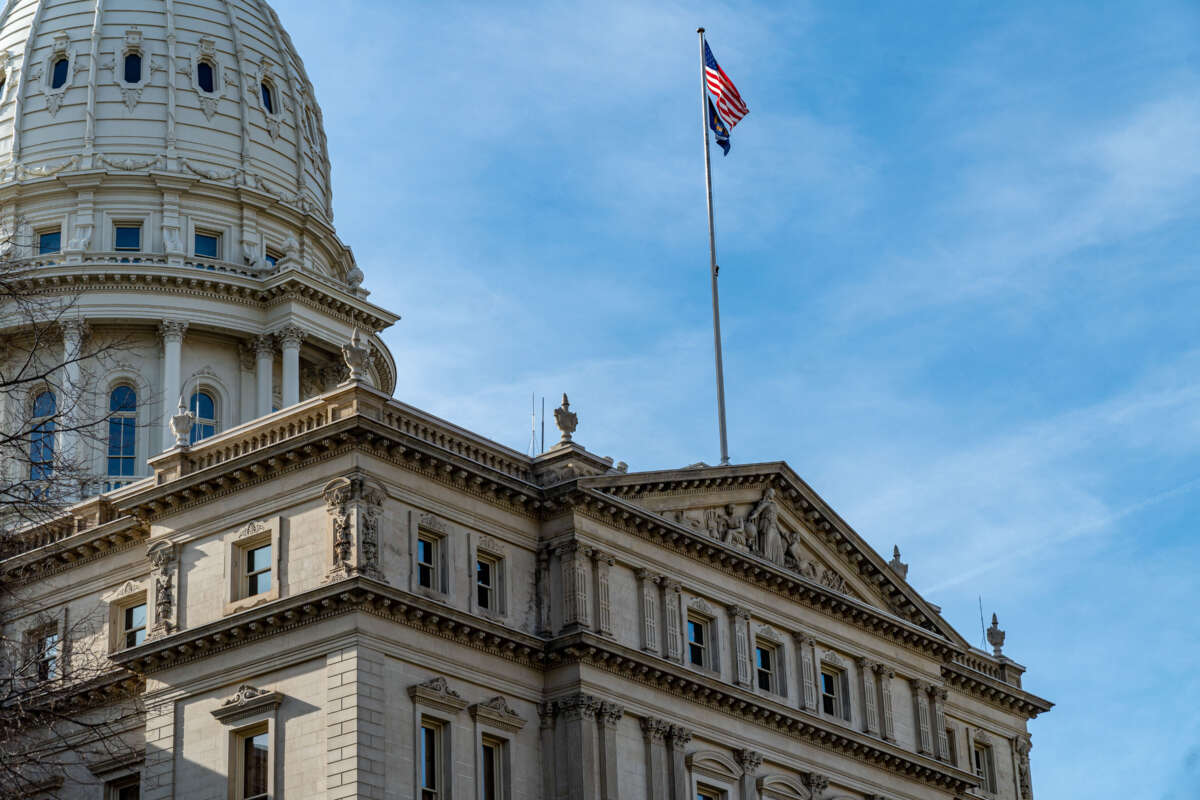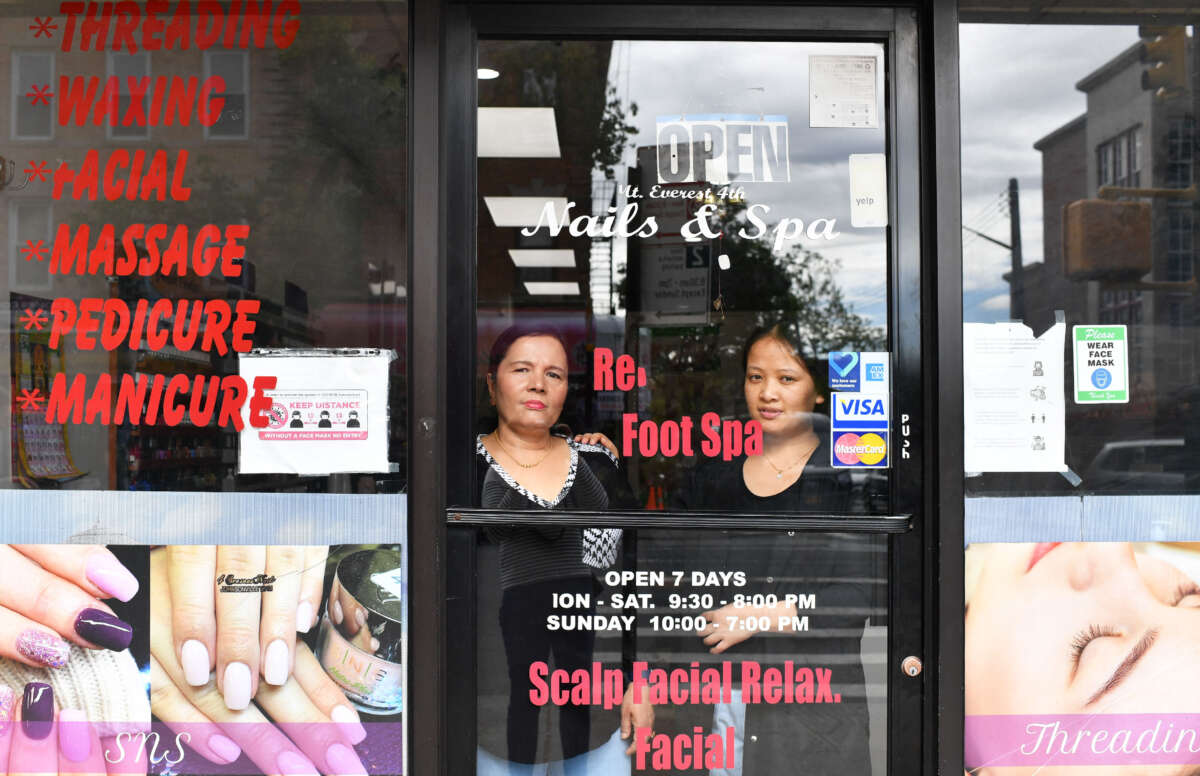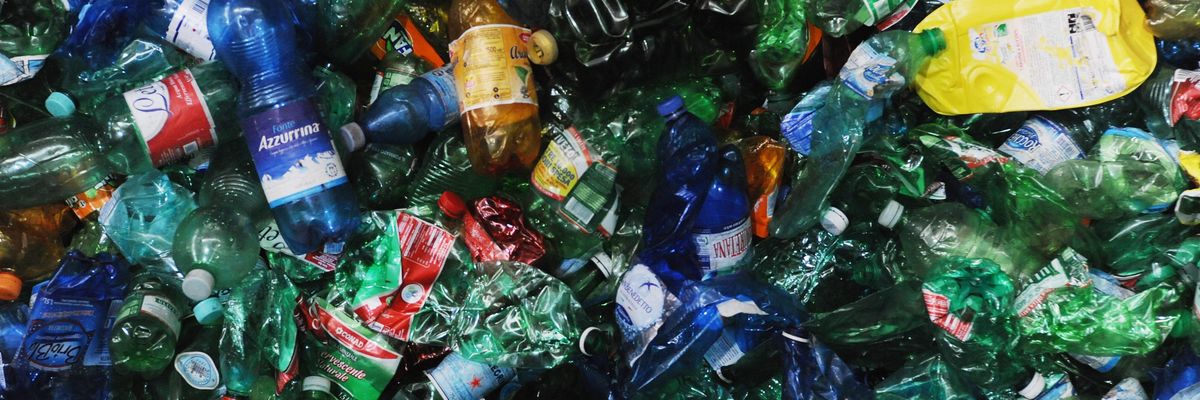Michigan is the first state in nearly 60 years to repeal the anti-union law.
By Sharon Zhang ,
February 13, 2024

INTERVIEW |
2024 Will See Wave of Minimum Wage Hikes — But the Impacts Won’t Be Felt Evenly
Ten million US workers will see wage increases this year, but inflation has eroded our tools for reducing inequality.
By C.J. Polychroniou , TRUTHOUT February 1, 2024
Democratic and progressive advocates have upheld Michigan Democrats’ trifecta control as a show of what Democrats are capable of doing when they act boldly in favor of popular initiatives like workers’ rights. Lawmakers at the federal level have tried to pass legislation that would outlaw “right-to-work,” such as the Protecting the Right to Organize (PRO) Act, but these bills have failed to gain support of conservatives in Congress.
“This is a big day for workers across our state,” State Sen. Darrin Camilleri, the original sponsor of the bill, said in a statement. “In a matter of months, our Democratic majority has been able to get more done for Michigan’s working men and women than we’ve seen in the past decade.”
Under Democratic control of the legislature and the governor’s office, the state has also made moves like banning so-called “conversion therapy” and repealed a decades-old abortion ban. Other measures, like the repeal of a law that requires insurance coverage for abortion to be opt-in and a series of gun control laws, also went into effect on Tuesday.
Illinois also recently made moves against “right-to-work” by enshrining a ban on the proposal into the state constitution in response to a ballot measure passed by voters in 2022, which came as a result of a campaign from labor advocates.

The Michigan capitol building is pictured in Lansing, Michigan.
REDUNNLEV / ISTOCK / GETTY IMAGES PLUS
In a major step forward for the labor movement, Michigan Democrats’ repeal of the state’s decade-old anti-union “right-to-work” law went into effect on Tuesday, making the state the first to overturn the law in nearly six decades.
Last March, the Democratically-controlled Michigan legislature passed the bill to toss the law aimed at hurting labor unions by allowing workers to opt out of union dues while still reaping benefits of unionization, costing unions resources and money. “Right-to-work” was originally established in Michigan in 2012, with the backing of right-wing dark money groups, who also lobbied against the bill last year.
Pro-labor groups have celebrated the law’s repeal, saying that it was a victory “decades in the making” as unions and labor advocates have fought against the law. The bill also restored the practice of the “prevailing wage” that requires workers on state projects to pay union wages and benefits.
“By standing up and taking their power back, at the ballot box and in the workplace, workers have made it clear Michigan is and always will be the beating heart of the modern American labor movement,” said Michigan AFL-CIO President Ron Bieber in a statement on Monday. “The work to get here after decades of attacks on wages and collective bargaining rights was grueling, but tomorrow, the beginning of a new workers’ rights agenda, where people come before profits, takes effect. I couldn’t be more proud.”
With Michigan’s repeal, there are now 26 states with “right-to-work” laws. Research has found that “right-to-work” laws’ effect of suppressing unions have an active role in suppressing workers. A 2015 paper by the Economic Policy Institute found that wages are 3.1 percent lower in “right-to-work” states than ones without the law, representing a roughly $1,558 drop in wages for a typical full-time worker in a “right-to-work” state.
In a major step forward for the labor movement, Michigan Democrats’ repeal of the state’s decade-old anti-union “right-to-work” law went into effect on Tuesday, making the state the first to overturn the law in nearly six decades.
Last March, the Democratically-controlled Michigan legislature passed the bill to toss the law aimed at hurting labor unions by allowing workers to opt out of union dues while still reaping benefits of unionization, costing unions resources and money. “Right-to-work” was originally established in Michigan in 2012, with the backing of right-wing dark money groups, who also lobbied against the bill last year.
Pro-labor groups have celebrated the law’s repeal, saying that it was a victory “decades in the making” as unions and labor advocates have fought against the law. The bill also restored the practice of the “prevailing wage” that requires workers on state projects to pay union wages and benefits.
“By standing up and taking their power back, at the ballot box and in the workplace, workers have made it clear Michigan is and always will be the beating heart of the modern American labor movement,” said Michigan AFL-CIO President Ron Bieber in a statement on Monday. “The work to get here after decades of attacks on wages and collective bargaining rights was grueling, but tomorrow, the beginning of a new workers’ rights agenda, where people come before profits, takes effect. I couldn’t be more proud.”
With Michigan’s repeal, there are now 26 states with “right-to-work” laws. Research has found that “right-to-work” laws’ effect of suppressing unions have an active role in suppressing workers. A 2015 paper by the Economic Policy Institute found that wages are 3.1 percent lower in “right-to-work” states than ones without the law, representing a roughly $1,558 drop in wages for a typical full-time worker in a “right-to-work” state.

INTERVIEW |
2024 Will See Wave of Minimum Wage Hikes — But the Impacts Won’t Be Felt Evenly
Ten million US workers will see wage increases this year, but inflation has eroded our tools for reducing inequality.
By C.J. Polychroniou , TRUTHOUT February 1, 2024
Democratic and progressive advocates have upheld Michigan Democrats’ trifecta control as a show of what Democrats are capable of doing when they act boldly in favor of popular initiatives like workers’ rights. Lawmakers at the federal level have tried to pass legislation that would outlaw “right-to-work,” such as the Protecting the Right to Organize (PRO) Act, but these bills have failed to gain support of conservatives in Congress.
“This is a big day for workers across our state,” State Sen. Darrin Camilleri, the original sponsor of the bill, said in a statement. “In a matter of months, our Democratic majority has been able to get more done for Michigan’s working men and women than we’ve seen in the past decade.”
Under Democratic control of the legislature and the governor’s office, the state has also made moves like banning so-called “conversion therapy” and repealed a decades-old abortion ban. Other measures, like the repeal of a law that requires insurance coverage for abortion to be opt-in and a series of gun control laws, also went into effect on Tuesday.
Illinois also recently made moves against “right-to-work” by enshrining a ban on the proposal into the state constitution in response to a ballot measure passed by voters in 2022, which came as a result of a campaign from labor advocates.













